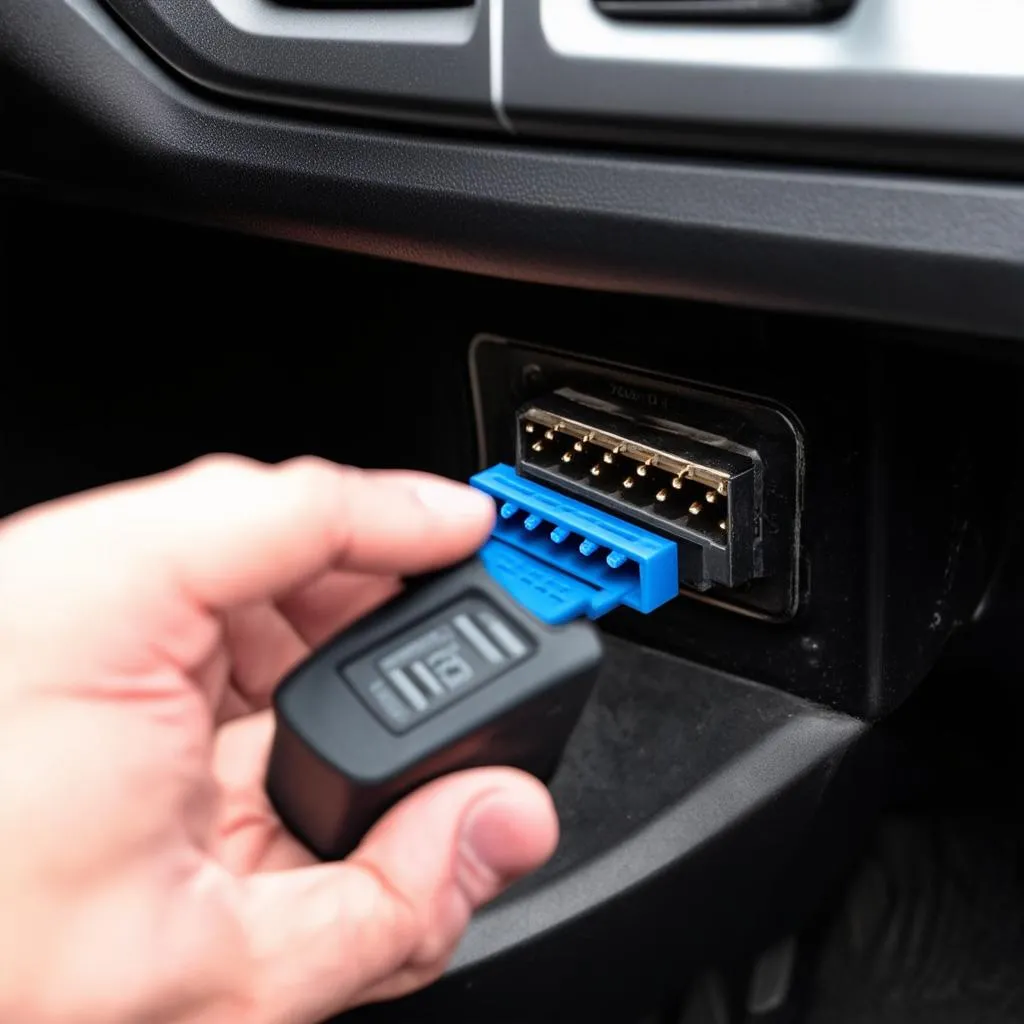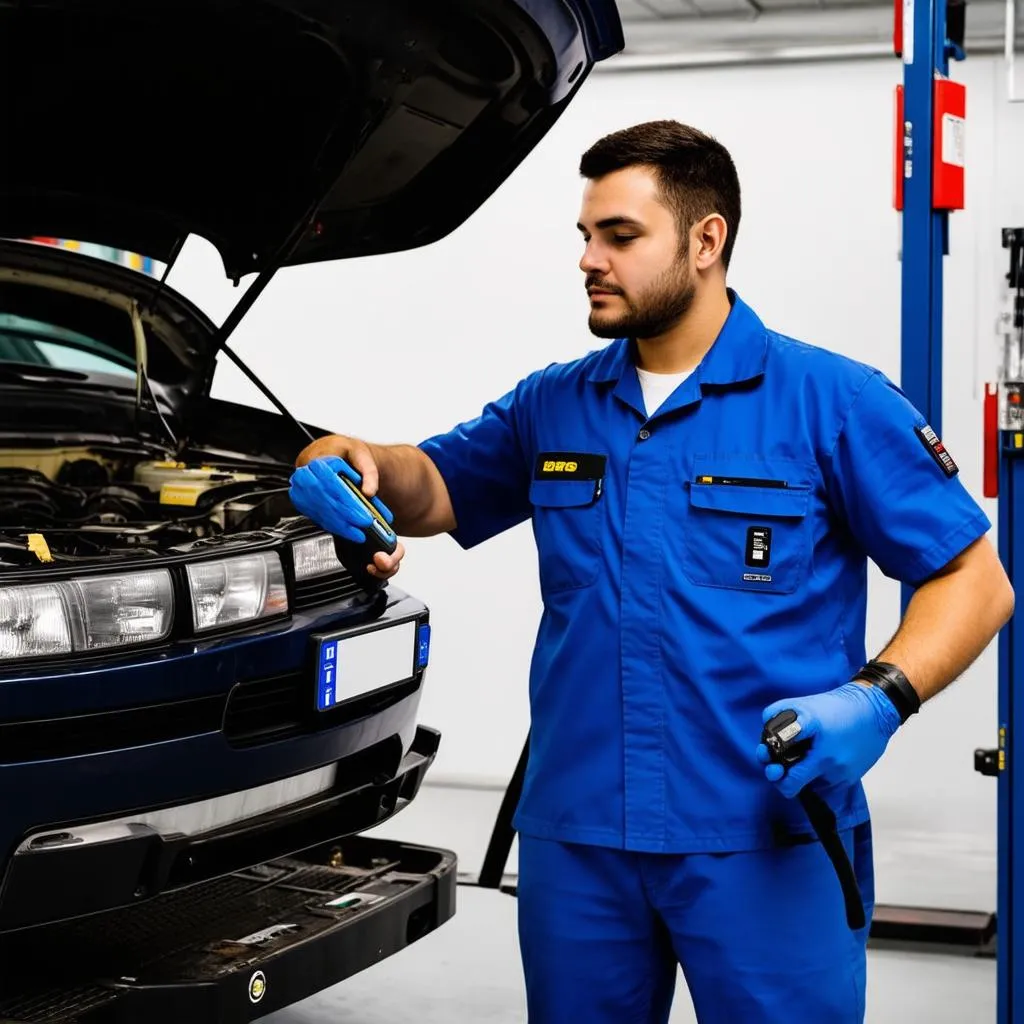Imagine this: you’re driving down the Pacific Coast Highway in your classic 1985 Chevrolet Camaro, the California sun warming your face, when suddenly – the “check engine” light blinks on. Frustration sets in. You pull over, pop the hood, and stare blankly at the engine. Wouldn’t it be amazing to easily diagnose the problem yourself? That’s where OBD-II comes in. But how do you know if your car has it? Don’t worry; we’ve got you covered!
What Does “OBD-II Compliant” Even Mean?
Before we dive in, let’s break down this technical jargon. OBD-II, short for On-Board Diagnostics, second generation, is like your car’s very own health tracker. It’s a standardized system that allows external devices, like a diagnostic scanner (some call them “code readers”), to communicate with your car’s computer. This way, you can decipher those pesky engine codes, understand what’s wrong, and maybe even fix it yourself!
From a mechanic’s perspective, it’s like having a conversation with your car, understanding its aches and pains directly. For tech-savvy car enthusiasts, it’s about taking control of your vehicle’s maintenance and avoiding costly trips to the mechanic. And let’s face it, in a world where every penny counts, that’s a huge plus!
So, How Can I Tell if My Car Speaks “OBD-II”?
Here are some surefire ways to check your car’s OBD-II compatibility:
1. The Magic Year: 1996
In the United States, almost all cars and light trucks manufactured after 1996 are OBD-II compliant. This was mandated by the Environmental Protection Agency (EPA) to monitor emissions and ensure vehicles remained environmentally friendly.
2. The Telltale Connector
Take a peek under your dashboard, usually on the driver’s side, near the steering column. Look for a 16-pin trapezoidal connector. This is the OBD-II port, your gateway to understanding your car’s inner workings.
 OBD2 port under car dashboard
OBD2 port under car dashboard
3. Check Your Owner’s Manual
Your car’s owner’s manual is like its own personal encyclopedia. It often contains information about your vehicle’s OBD system, including whether it’s OBD-II compliant.
4. Consult the Experts Online
Websites like TechCarUSA offer a wealth of information on OBD-II systems, including compatibility charts and helpful guides. You can also find detailed resources on sites like CarMD and OBD-Codes.com.
What if My Car Isn’t OBD-II Compliant?
Don’t fret if your trusty steed predates the OBD-II era. While you won’t have access to the standardized system, older vehicles might still have some form of onboard diagnostics. For example, some models from the late 1980s and early 1990s might use OBD-I, a less sophisticated system.
“Even though OBD-I isn’t as comprehensive as OBD-II, it can still provide valuable insights into your car’s engine performance,” says automotive expert Dr. Emily Carter, author of “The Complete Guide to Automotive Diagnostics.” “You’ll need a specialized scanner to read these codes, but it can be a lifesaver for vintage car enthusiasts.”
Ready to Unlock Your Car’s Secrets?
Knowing if your car is OBD-II compliant empowers you to take control of your vehicle’s maintenance, diagnose problems, and potentially save money on costly repairs. Whether you’re a seasoned mechanic or a curious car owner, understanding your vehicle’s OBD system is an invaluable tool in today’s tech-driven world.
Here are some related questions you might find helpful:
- What are the benefits of using an OBD-II scanner?
- How do I choose the right OBD-II scanner for my car?
- Can I use an OBD-II scanner to reset my check engine light?
- Are there any risks associated with using an OBD-II scanner?
 Mechanic using OBD2 scanner to diagnose car problems in auto repair shop
Mechanic using OBD2 scanner to diagnose car problems in auto repair shop
For a comprehensive guide on buying an OBD reader, check out our article: Buy OBD Reader: The Ultimate Guide.
Need help setting up your OBD-II scanner or interpreting those cryptic error codes? Don’t hesitate to reach out to our team of automotive experts via WhatsApp at +84767531508. We’re available 24/7 to guide you through the world of car diagnostics!
We encourage you to explore our other informative articles on TechCarUSA, your one-stop shop for all things automotive. Happy driving!